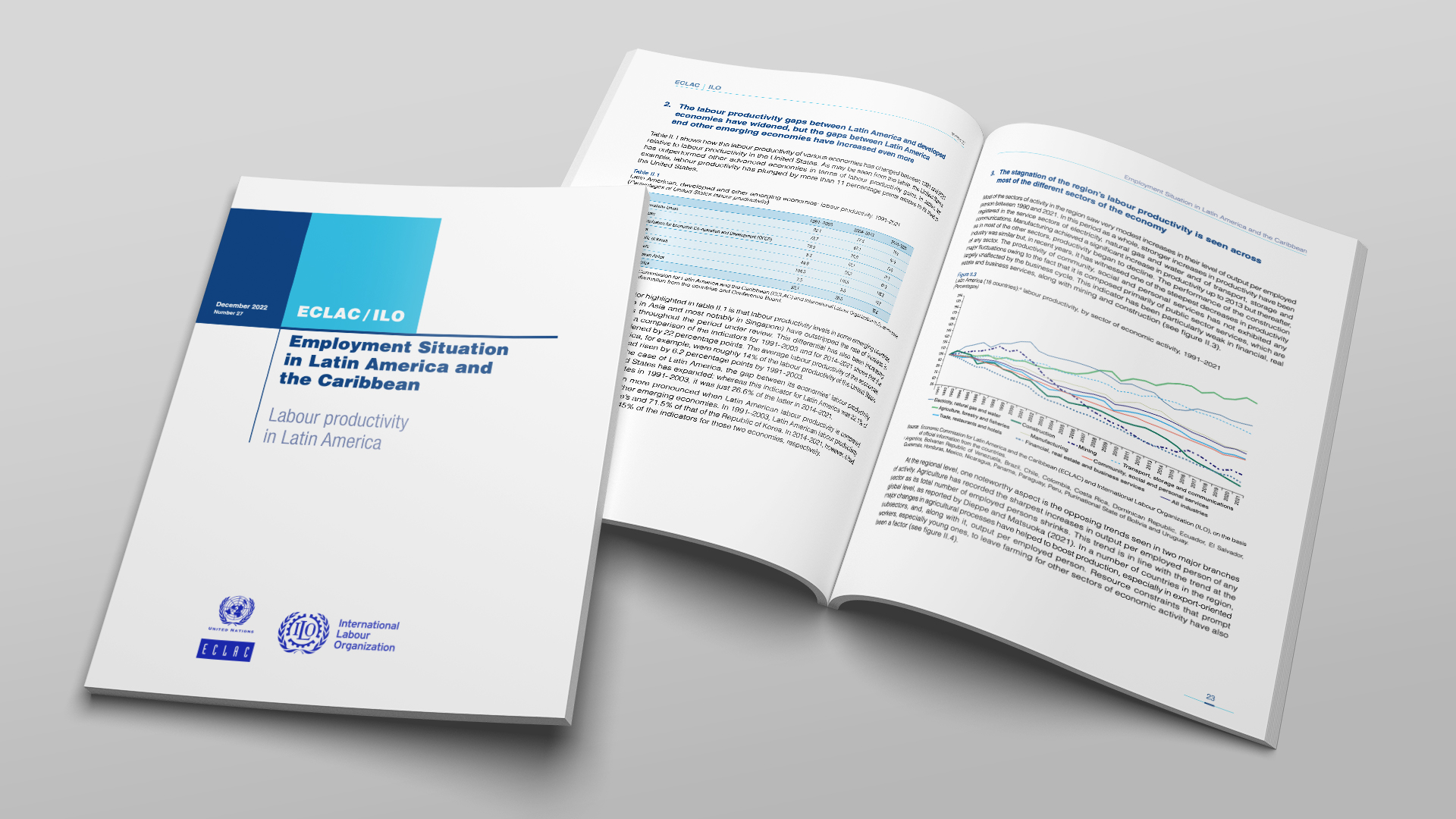ECLAC and the ILO Point Up the Importance of Promoting Public Policies that Would Invigorate the Region’s Labour Markets for the Creation of Quality Employment
Work area(s)
Topic(s)
In a new joint report, the organizations indicate that despite the recovery seen in labour markets in the first half of 2022, it is expected that in the second half the deceleration of growth will slow the region’s capacity to generate quality jobs.

The Economic Commission for Latin America and the Caribbean (ECLAC) and the International Labour Organization (ILO) released a new joint report today in which they indicate that Latin America and the Caribbean’s economies are facing a very complex macroeconomic, social and environmental context, which is going to affect labour market dynamics. The institutions note that despite the recovery seen in labour markets in the first half of 2022, it is expected that in the second half, the deceleration of growth will slow the region’s capacity to generate quality employment.
In the first section of issue No. 27 of their joint publication Employment Situation in Latin America and the Caribbean: Labour productivity in Latin America, the United Nations organizations indicate that the coronavirus disease (COVID-19) pandemic prompted an unprecedented crisis in Latin America and the Caribbean’s economies and labour markets. In previous reports, they emphasized that the recovery experienced by the region’s labour markets since economies reopened had been slow, partial and uneven. However, in the first half of 2022, favorable changes were observed in those markets’ main indicators.
First, in the second quarter of 2022, the employment rate reached the level seen prior to the crisis, and the unemployment rate declined by 2.8 percentage points versus the same period of 2021, reaching 7.3%, a figure below pre-pandemic levels. This reduction in the unemployment rate was observed in all the countries studied. Similarly, there were improvements in the labour participation rate, although it is still below the level recorded prior to the health crisis.
Another aspect highlighted in the first part of the report is that these positive trends are stronger among women, who were especially affected during the pandemic and whose recovery was slower than that of men in 2021. Indeed, although in the first half of 2022, the unemployment rate fell for both men and women (by 2.3 and 3.4 percentage points, respectively), the decline was much sharper in the case of women, resulting in a narrowing of the unemployment gap, which went from a ratio of 1.5 to 1.4 between the first half of 2021 and the same period of 2022.
The report also noted that since the first half of 2022, wage employment has increased more than own-account work and the manufacturing sector has shown the highest rates of job creation. That section of the document also indicates that average real wages have fallen due to the significant increase in inflation in the first half of this year.
In the Employment Situation in Latin America and the Caribbean No. 27 report, ECLAC and the ILO also state that in addition to confronting the difficulties posed by the current labour market situation, the region’s economies face the challenge of reversing the low growth in productivity and investment that has been registered since the debt crisis.
In this regard, the report’s second section shows the stagnation exhibited by Latin America’s labour productivity since the 1980s, and how this has prompted a widening of the region’s labour productivity gaps vis-à-vis developed economies, and even more so in relation to other emerging economies. The stagnation of labour productivity in the region has been widespread and, in contrast to what occurs in other emerging economies, such as those in Asia, the structural transformation has not been guided with sufficient force by productive development policies so as to activate those sectors that drive and invigorate growth.
According to ECLAC and the ILO, to reverse this situation and stimulate the creation of more well-paid, formal jobs, it is necessary to raise the level of ambition of productive development policies, taking into account new policy approaches for achieving this and the new realities associated with the technological revolution and the new productive paradigms it is generating. In addition, productive development policies must have a proper macroeconomic and financial framework. Finally, these institutions highlight the positive experiences with social dialogues carried out in the context of the productivity councils established in the region.
For queries and interview requests, contact:
- ILO Press Office Santiago. Email: prensaoit@ilo.org.
- ECLAC’s Public Information Unit, Santiago, Chile. Email: prensa@cepal.org; Telephone: (56) 22210 2040.
Related content
Country(ies)
- Latin America and the Caribbean
Contact
Public Information Unit
- prensa@cepal.org
- (56 2) 2210 2040